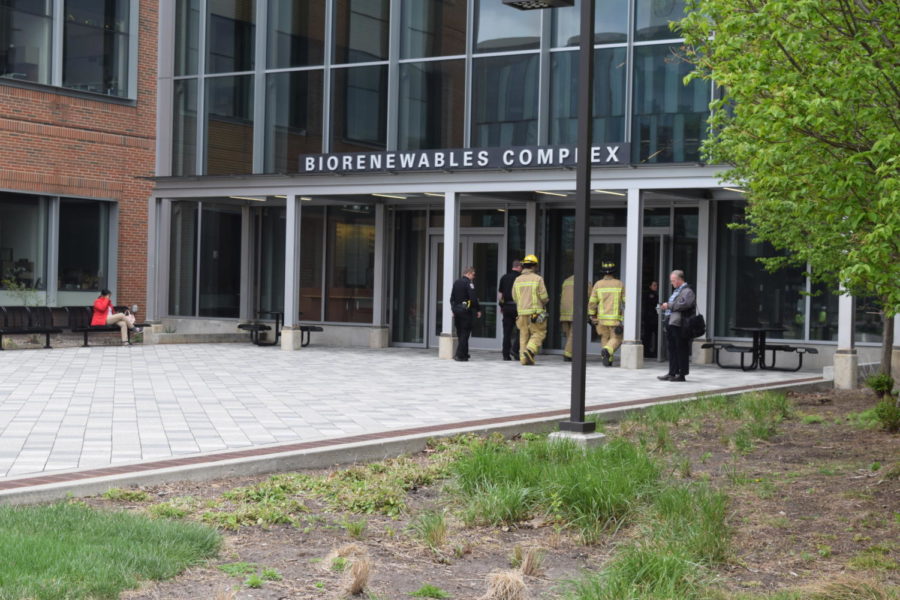BREAKING: Sukup Hall evacuated after unidentified natural gas smell
The Ames Fire Department entering Sukup Hall to inspect the building after reports of a potential chemical or natural gas leak.
April 19, 2023
The Ames Fire Department reported there were no signs of a gas leak at Sukup Hall after the building was evacuated due to an unidentified chemical smell in certain parts of the building Wednesday afternoon.
Richard McColley, the assistant director of Environmental Health and Safety, said his department also could not identify a source of the odor. Environmental Health and Safety is investigating to pinpoint the source.
“It’s very tranisent and very difficult for us to trace out where it’s actually coming from,” McColley said. “The reality is that based on yesterday I would think it would be something from outdoors, which there are serveral locations for gas lines to lead into buildings.”
Lt. Troy Buchman told the Iowa State Daily the Ames Fire Department checked all four floors and the building gas monitor, which reports atmospheric readings for Volatile Organic Compounds, oxygen levels, carbon monoxide and hydrogen sulfide. Buchman said the reading for the building was normal.
The smell lingered outside the hall, and people were allowed back in approximately 30 minutes after the alarms were sounded. Buchman said the smell was stronger outside than inside.
One individual from Iowa State’s Environmental Health and Safety was also present. Ames Fire Department has responded to Sukup Hall in the past in a similar situation. The Ames Fire Department was not able to locate a source of the smell.
“So when they are working with chemicals that get exhausted to the outside atmosphere, and if the wind is just right, it could potentially blow something toward the building,” Buchman said. “I’m not saying that’s what it was, but it is possible.”
Timothy Shepherd, an associate teaching professor in agriculture and biosystem engineering, made the call to the Department of Public Safety to report the smell.
Shepherd smelled the odor and asked university professor in agricultural biosystems and engineering Steve Freeman, who teaches safety, what the protocol was.
“We couldn’t find the button that I thought was available in every lab, so we just called DPS,” Freeman said.
Tom Burmm, a professor in the department of agriculture, was in his office when the alarms went off. Burmm said people he talked to noticed the smell, especially in Elings Hall, and he smelt the odor for roughly five minutes before the alarms sounded.
Freeman said the smell was not the same in every part of the building. Burmm said he could somewhat smell the odor from where he was on the north side of Sukup, but for people on the south side of Elings, the smell was more prevalent.
“Of course, alarms are terribly inconvenient, but it doesn’t matter,” Burmm said. “Get out of the building because you never know.”







